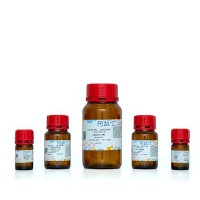Analysis of Shuffled Libraries by Oligonucleotide Probe Hybridization
互联网
409
In vitro recombination is often used to generate genetic diversity for directed evolution. Recombination techniques that rely on fragment hybridization yield libraries with preferred crossover positions and, in some cases, a bias toward incorporation of one parent over the others. This limits the diversity, and thus the utility of the library. These biases vary depending on the technique used for recombination, the distribution of sequence similarities within the parental genes, and the efficiency by which the different parental genes are PCR amplified. To assess the diversity generated in a library of chimeras, sequences of a large number of chimeras are required. While DNA sequencing can yield this information, sequencing these genes is prohibitively expensive, especially when the genes being recombined are large. Oligonucleotide probe hybridization, in contrast, offers a cost-effective approach for obtaining information about library biases that allows for optimization of shuffling procedures. When coupled with functional information, this technique can provide information about the relationship between sequence and function (1 ,2 ).







